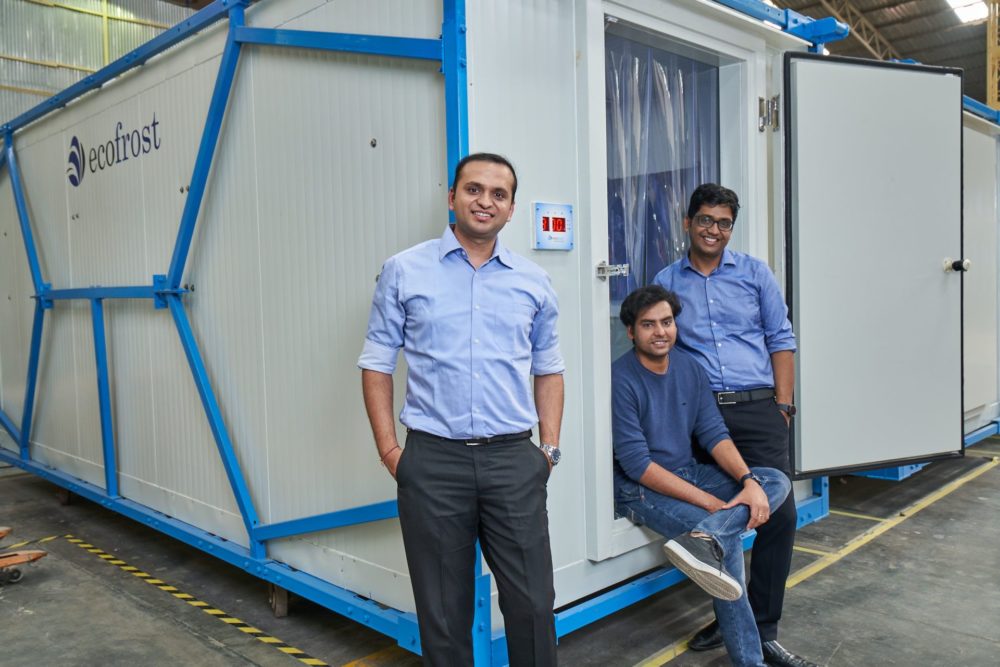Ecozen, an Indian company that’s providing solar-powered irrigation and cold chain storage solutions, has closed a $25 million Series C in equity and debt from a pool of investors and banking institutions.
- The equity round was led by the US-based global real assets investment manager Nuveen and Dare Ventures, the investment arm of Indian fertilizer and crop protection producer Coromandel International.
- Existing impact investors Caspian and Hivos-Triodos Funds also participated in the equity round. They were joined by the Export-Import Bank of India, whose support will boost Ecozen’s exports.
- The debt capital came from Maanaveeya Development and Finance, Oxyzo, Northern Arc group, HDFC Bank and Axis Bank.
- Omnivore and Sathguru Catalyser’s Innovation in Food & Agriculture Fund (IFA Fund) who were investors in Ecozen’s Series A achieved partial exits in this round.
- Ecozen will leverage this financing to expand its sales and marketing teams to Southeast Asia and Africa.
Why it matters
India is one of the world’s largest food-producing countries in the world, ranking as the world’s largest producer of milk and pulses, and second largest producer of wheat, rice, sugarcane, groundnut, vegetables, and fruits among other food categories. But the country also loses around $12.3 billion of food to waste each year due to inadequate cold storage facilities specifically, according to Amitabh Kant, former CEO at India’s government public policy think tank NITI Aayog.
These realities have prompted the government to invest in cold chain storage and value-addition facilities, a move that was announced last year under the Scheme of Integrated Cold Chain and Value Addition Infrastructure.
How it works
“Our work has always been at the intersection of climate tech and agri,” Devendra Gupta, CEO of Ecozen, says speaking to AFN.
Together with his co-founders Prateek Singhal and Vivek Pandey, the trio teamed up to start Ecozen in 2010, a company that would offer smart irrigation solutions to farmers by leveraging AI, thermal energy storage, and motor control technologies. The aim was to keep farming communities productive beyond the rainy season using clean energy solutions.
But conventional irrigation uses water pumps that are mostly powered by either diesel or petrol causing pollution and contributing to the world’s greenhouse gas (GHG) emissions crisis.
Ecozen first developed an irrigation unit named Ecotron, a smart IoT-enabled system consisting of solar-powered irrigation pumps, motors, and remote controllers that also enables data collection.
“We believe all equipment out there today running on fossil fuels needs to be redeveloped or redesigned to be able to accommodate more sustainable and climate resilient methods of operation,” Gupta says.
He says the company has since deployed more than 100,000 of these irrigation systems, reducing over a million tonnes of GHG emissions.
“We have enabled the deployment of a significant amount of clean energy which is around 400 to 500 megawatts of clean energy capacity, preventing the use of diesel-based systems hence leading to that kind of abatement of GHG emissions,” Gupta tells AFN.
And this worked. The farmers recorded significant upticks in yields, according to Gupta, although it did not correspond to increasing incomes. The perishable nature of their produce meant that the farmers who lacked appropriate storage solutions would end up selling it at much lower rates. They either had to get off-takers quickly or risk spoilage between harvest and sale.
Witnessing the predicament the farmers had and the amount of food that was being wasted, Ecozen opted to create a cooling solution as well.
Thus, Ecofrost was born; a solar-enabled cold room that’s leased out to farmers to help them better manage and store their perishable produce. The cold storage unit has prevented up to 20,000 tonnes of food waste, according to Ecozen.
“We want to build the technology or products in a manner that we’re able to take this to a larger farming ecosystem. And if we do that, then we see that we have a significant impact on ensuring food security because we’re ensuring there’s more of it, and we’re also ensuring that whatever is grown is not getting lost,” Gupta says.
Industrial and geographical expansion
With the planned product range expansion, Ecozen wants to leverage its technologies in other industries. One is mobility, where it plans to use its motor control technology.
Ecozen says it’s also rigorously expanding in India as well as wider South East Asia and Africa where this latest round of funding aims to boost sales and marketing operations. Lead investor Nuveen’s experience in scaling impact-oriented businesses will also augment its commercial offering., says Gupta.
What they’re saying
“Nuveen seeks out companies that mitigate climate change, build resilience to its impacts, and provide high quality, affordable products and services to the low-income consumer segment,” said Rekha Unnithan, managing director and co-head of private equity impact investing at Nuveen.
“Ecozen has built products that do all three simultaneously – replacing diesel water pumps and fossil-fuel dependent coolers, improving drought resiliency for smallholder farms, and increasing farmer incomes. With Ecozen’s proven expertise in delivering climate-smart technology solutions, while maintaining profitability, together we will exponentially grow their impact globally and beyond agriculture.”
Harsha Bangari, managing director at the Export-Import Bank of India also said, “India Exim Bank through its Ubharte Sitaare Programme identifies Indian companies that are future champions with good export potential,”
“Ecozen, with its innovative clean technology solutions, has potential in international markets. The support from India Exim Bank will boost the company’s efforts to enhance its export capabilities and exploring additional business opportunities overseas.”





